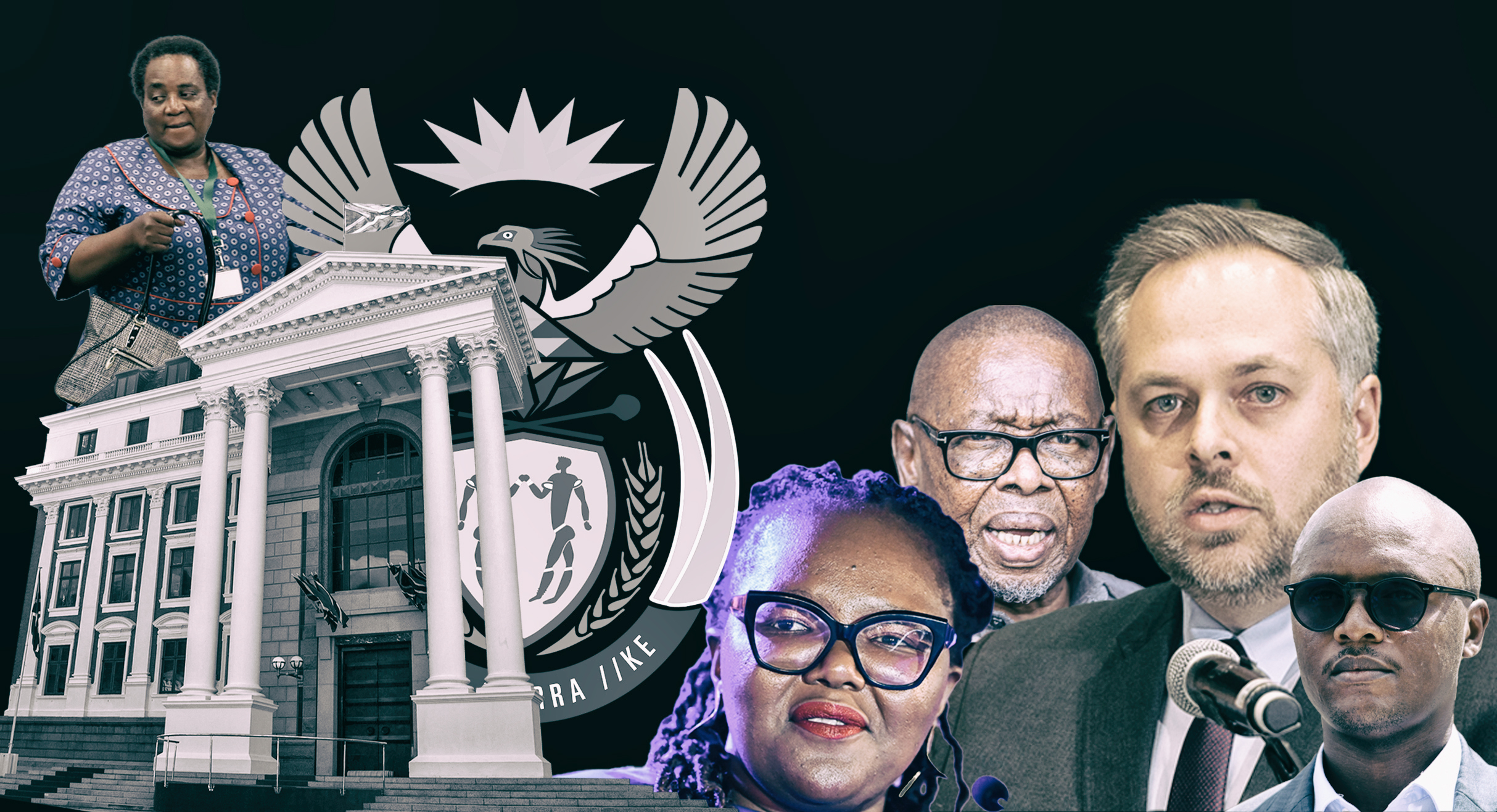On Wednesday, News24 published a report suggesting that some ANC ministers were concerned that DA ministers were going to make them appear incompetent.
It appears that, in particular, they were concerned that the DA’s strategic communication machinery would be very effective.
The fact that the ANC rushed out a statement before 10.30am on Wednesday denying the report suggests that the story stung.
The party’s concern about this issue may be well founded.
The DA has campaigned for years on the claim that it has a better service delivery track record than the ANC, whose individual officeholders can expect a concentrated effort from the former main opposition party to do better in the national government.
There are examples where people deployed by the ANC in Cabinet have simply done nothing.
Mildred Oliphant was the minister of labour for five years. In all of that time, she did not attend one single meeting of the parliamentary portfolio committee.
Her excuse was that she was not formally invited.
Also, the DA ministers in government for the first time are likely to be more enthusiastic than their ANC counterparts. They are not weighed down by experience and the knowledge of how difficult government can be to move.
It is surely impossible to expect someone in their thirties representing their party in national government for the first time to behave in the same way as Angie Motshekga, who has been in Cabinet for more than 15 years.
Age differences
There is another important point to be made.
The people deployed by the DA are, in many respects, different from those deployed by the ANC.
The first big difference is age. Siviwe Gwarube, the country’s youngest Cabinet member at 35, grew up in a different country to Blade Nzimande, who is nearly twice her age.
Then, members and supporters of the ANC and the DA represent different constituencies.
DA voters tend to come overwhelmingly — although not exclusively — from urban and suburban areas, while ANC voters tend to live in rural or township areas (again, not exclusively).
This might well inform different worldviews that can lead to contestation.
This could manifest in what appear to be small arguments about media coverage.
Without regular polling, politicians from all parties could find it difficult to assess whether they are making progress, forcing them to rely either on coverage in the formal media or to use erratic and irrational social media.
Last year, Nzimande complained that his deputy at the time, Buti Manamela, was receiving more media coverage than him.
While this appears trivial, underneath it lies a politician’s fear that this is proof they are being eclipsed.
The ANC has itself to blame here.
While some ministers (and MECs) have made a name for themselves through broadcast interviews, others have shied away from this. This is largely because being in government involves having to answer questions about problems and mistakes while being in opposition allows for interviews to simply be an opportunity to attack the governing party.
Some in the ANC may not feel as comfortable as those in the DA answering questions in the English-language environment that tends to define the middle-class media.
At the same time, the DA could be taking some of the tactics of opposition into government, which is why its ministers have trumpeted their every decision and action from the hilltops.
This will not work forever.
As the party’s ministers will soon discover (if they have not already), being interviewed from the opposition benches is very different from being interviewed when in power. They may find appearing in the media is not to their benefit and we could see the almost unprecedented sight of a DA member declining an interview.
Ideological differences
Another dynamic could expose intra-Cabinet rivalries.
There have been times in SA when the Cabinet has been divided along ideological lines. The best example of this was in 2008, when then president Thabo Mbeki was recalled. A large group of ministers resigned to demonstrate their support of him, while others stayed on.
In the new coalition government, those groupings could become more obvious, represented by the different parties.
DA ministers are likely to use the fact they have more than one portfolio to achieve certain aims.
So, for example, Home Affairs Minister Leon Schreiber could ask Communications Minister Solly Malatsi to help bolster the secure network linking Home Affairs offices around the country. Malatsi could make this a priority because it would allow both DA ministers to claim an easy victory.
Malatsi could deny this kind of treatment to another minister from another portfolio who belongs to another party.
That said, there are limits to this kind of action because all the parties involved in the coalition government are now tied together and will sink or swim together.
Of course, much of the reporting on the new coalition government will be probing the points of difference. This is often what political reporting is (and should be) about.
And a “rivalry” between ANC and DA politicians could lead to better governance.
Ministers from the two parties (and others in the coalition) could end up spurring on and encouraging one another to govern better.
Certainly, it is impossible to imagine a minister managing to avoid scrutiny as Oliphant did for such a long time in a coalition like this one — if only because their party colleagues would not allow it.
So, while the headlines focus on rivalries, there are better outcomes. In the same way that a competitive democracy leads to more accountability, a Cabinet made up of rival parties may lead to better governance. DM





